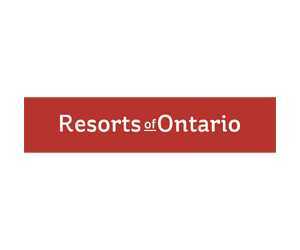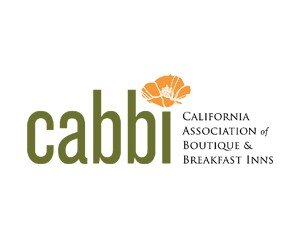Travel is a profoundly meaningful experience, and travelers — whether Millennials, Gen-Xers or Baby Boomers — are increasingly looking for immersive, authentic travel experiences. As travelers we don’t just want to see a place, we want to feel it, even at the end of the day when we return to our lodgings. Hotel stays are not just about tightly tucked beds, mini fridges and room service anymore; they are about memorable moments that complement and enhance the travel adventure.
The proof is in the success of services like Airbnb as well as new boutique-like brands created by traditional hotel chains (like Hyatt Centric and Marriott’s Moxy Hotels). Travelers are looking for distinctive stay experiences through which they can connect more genuinely with the location.
It’s clear; for hotels to appeal to the modern traveler’s desire for authenticity, and to stand out from other hotels offering all the same features and amenities, they should focus on selling an experience, not just a pretty room. In other words, a hotel should be a destination in itself.
This is where boutique and other independent properties have the upper hand. Not bound by cookie-cutter limitations, independent lodgings are in a good position to provide memorable stay experiences that reflect their local destination, the unique character of their property, and the desires of their target demographic. All it takes is a little passion and creativity — qualities independent lodging operators tend to have in abundance.
Here are some ideas for creating and selling the stay experience:
Experiential Amenities
Experiential amenities go beyond modern conveniences like Wi-Fi and coffee makers; they appeal to a guest’s sense of discovery and adventure. One way to come up with experiential amenities that align with your property and guests is to consider your connection with the local area and invite guests to experience it — on property as well as off.
A hotel that is a popular base for beach-goers might offer branded sunhats for guests to wear while soaking up the rays. An inn surrounded by vineyards could include a complementary bottle of local wine, along with a map pinpointing wineries, and perhaps even bicycles for self-guided wine tours. A downtown hotel at the core of city nightlife could provide martini glasses, a shaker and cocktail recipes to accompany the mini bar. Properties with stunning natural surroundings might offer bikes or kayaks for guests to explore the area.
Think about why people choose to stay at your property and try to come up with experiential amenity ideas that enhance their travel experience. Such amenities are far more memorable than cable TV and laundry service.
Activities
While most travelers have a general idea of the things they would like to do during their trip before they travel, much is left to spontaneity. Lodgings that offer or organize activities for guests not only provide guests with a much-appreciated convenience, but encourage them to experience the destination to the fullest.
Properties can work with local tour and activity operators or run their own activities to offer stand-alone experiences that can be booked on demand or included in stay-and-play packages.
Again, think about why your guests visit your destination and offer activities that will enhance their experience, be it guided gastronomy tours, paint-and-sip nights, guest receptions with local wine and beer tasting, tree planting, horseback riding, or beach volleyball tournaments. If you need help managing activity bookings alongside room bookings, WebRezPro PMS offers an ActivityEngine module that does just that.
The Human Touch
While it may seem that guests want less human contact due to rising demand for mobile services, an authentic hospitality experience can only be delivered through authentic hospitality. People are at the heart of hospitality; even the most luxurious hotels with the fanciest rooms will lose without creating positive personal connections with guests.
Hotel staff make guests feel valued simply by interacting with and listening to them and this plays a large part in creating a memorable stay experience. From warmly acknowledging a guest in the hallway, making sure they have all they need, to providing a complimentary bottle of wine for the couple celebrating their anniversary, to sharing local recommendations, simple gestures can be the difference between a standard stay and a memorable one.
Such personalized service is a fundamental element of the stay experience, so it’s important to listen to your guests and build guest profiles that will help you anticipate their needs during future stays.
Storytelling
The stay experience is what sets hotels apart over features and amenities. As consumers, we don’t always buy based on price — our purchasing decisions are often driven by emotion and based on perceived value of the experience. Properties that tell a great stay story on their website succeed in making an emotional connection with customers that’s more likely to result in bookings.
The key to great hotel storytelling lies in identifying your property’s USPs (unique selling points), in other words, why your guests choose you. Put yourself in your guests’ shoes and describe the experience (not just features) to tell a story that gets guests excited as they imagine themselves already there. Focus on the senses — the sights, scents, sounds, tastes and touch — to bring website visitors as close as possible to the actual guest experience. For example, instead of simply saying, “enjoy our sparkling outdoor pool,” describe the experience of enjoying the pool, like, “after a hot day out exploring the city, cool off in our sprawling pool, or poolside with a refreshing beverage under a shade umbrella, surrounded by our fragrant tropical gardens.”
Images and video are particularly effective at engaging the senses and conveying the experience. To make the most of visual storytelling, ensure images showcase your property in its best light. The WWT blog offers some tips on how to make the most of photos and video on hotel websites.
Hotels and other types of lodgings are and always have been intrinsic to the travel experience, but now even more so. No longer simply a room to sleep in, lodgings provide an experience — one that reflects a unique combination of their location, property and guests. Shifting focus toward the stay experience can help a property stand out from the crowd, make a strong emotional connection with customers, and sell more rooms!

























